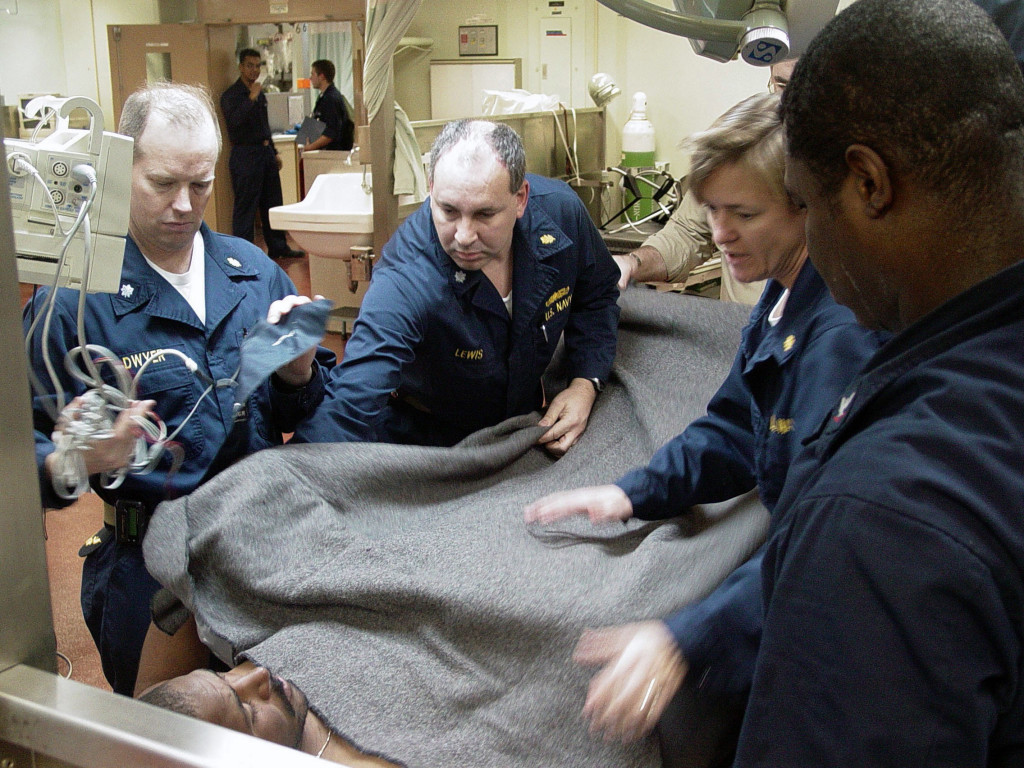Do you want to live forever? This post is based on the Nova documentary “Can We Live Forever?” with Neil deGrasse Tyson (American astrophysicist, cosmologist, author, and science communicator) and other reputable sources. Of course, nobody can actually live for eternity. Every single day we live, we inch our ways closer and closer to our graves. But can we live to be hundreds, or even thousands of years old? Is it really possible that we can live forever, but in another form? We will investigate these fascinating questions and others that have crossed the minds of curious humans.
In our previous post called Weird Stuff Of The Future, we briefly discussed the current measures scientists are taking for human life extension. Now, we will dig even deeper into the science that may give us the opportunity to live healthier and longer than ever before. From easily obtained organ transplants to avatars that will never face death, you may surely see this kind of bizarre technology a lot sooner than you may think. You may find this amazing science to be unbelievable.
Can We Cheat Death?

“Embalmed body of a man” by Pöllö is licensed under CC BY-SA 3.0
In 400 BC, the average life expectancy was estimated to be around 30 years. In the 1800s, life expectancy throughout Europe was between the ages of 30 and 40. Even after many centuries, it didn’t change much. However, today the life expectancy has doubled. According to USA Today, the average life expectancy for females is 81, and 76 for males. Why did it double in such a short time?
There are various factors that have positively influenced human life expectancy. This includes improved health care, immunizations, sanitation and of course, rise in advanced technology. The access to clean running water, as well as improved nutrition are a major reason for the big jump.
Will Obesity Eventually Halt Our Progress?
The Social Security Administration (SSA) predicts the life expectancy will not stop increasing. They predict it will be the mid-80s in the later 21st century. However, there are some researchers who predict that poor health such as obesity will likely stop our progress. It is even possible that it will reverse human life expectancy. Sadly, two thirds of adults in the United States today are obese or overweight. But despite this unfortunate data, some scientists predict that life expectancy at birth will likely rise to 100 years in the United States and other developed nations by the year 2060.
Recent Article From The Guardian Gives Hope For Longevity
An article published on January 11, 2015 by The Guardian discusses living forever. The article states it is possible to live beyond 120, and even to 1,000 years old (statistically speaking).
Centenarians And Supercentenarians
A centenarian is a person who lives to their 100th birthday or beyond. Throughout the history of humanity, there have been many centenarians. Even in ancient times, a philosopher by the name of Democritus of Abdera (c. 470/460 – c. 370/360 BC) was said to have lived to be 109 years old.
According to the United Nations, it is estimated that there were 316,600 living centenarians worldwide in 2012. This number is expected to rise up in the future. Office for National Statistics (ONS) predicts that one third of babies that are born in the UK in 2013 are expected to live to 100.
A supercentenarian is one who is lucky enough to reach their 110th birthday or beyond. This is very rare. Only about 1 in 1,000 centenarians will live long enough to become a supercentenarian.
People That Have Lived To The Age Of 115

The French supercentenarian who had the longest confirmed human lifespan on record. Jeanne Calment at age 20.
In recorded history, there are only 35 people that have reached the whopping age of 115. Misao Okawa is currently the world’s oldest living person. Okawa was born on March 5, 1898. Due to the recent death of Bernice Madigan (July 24, 1899 – January 3, 2015), there are now only 5 people age 115 and older. Interestingly, these are the last five people that had lived back in the 1800s.
The oldest recorded person in history is Jeanne Calment. She was born on February 21, 1875 and died on August 4, 1997. She lived to be 122 years, 164 days old. Can her record soon be broken?
Will We Eventually Cheat Death?
Over the years, humans have certainly made a lot of progress regrading life expectancy. Does this mean that we will eventually be able to cheat death, or at least live for many centuries? Just look at how life expectancy has jumped way up from the 1800s to today. Of course, we can never become immortal. Death is inevitable and we all have to face it. However, with better medicine, research and more scientific breakthroughs, one can only imagine what the next few decades will hold.
The Availability Of Transplants In The Future

“Time Lapse Microscopy Cancer Cells” by Asd.and.Rizzo is licensed under CC BY-SA 3.0
Sadly, so many people are on a waiting list for organ transplants. Although scientists have been growing cells in labs for decades, they just sit around in clumps or flat layers. The challenge is to actually create three dimensional organs. That is, functional organs such as a heart that has valves and chambers. In order to build a real functioning organ, cells would need a scaffold to help guide their growth. Another challenge is to engineer scaffold materials that living tissue can grow on.
Fortunately, scientists have found the best solution to this challenge. Robert Langer (American engineer, scientist, entrepreneur, inventor) used a material called bio-rubber. He helped engineer scaffold out of the right material. This lead to the success of turning cells into a living body part.
The Mouse With A Human Ear

In order for an organ to successfully grow in the scaffold, it must be seeded with cells. With just a few weeks in an incubator, the cells are able to multiply. Scientists used a hairless mouse to grow cartilage in the shape of a human ear. The ear was located on the back of the mouse and was completely connected to the blood vessels (it is just like a native ear in a normal circumstance). By using a patient’s own cells to grow the ear, there was no problem with rejection. The ears grown on the mice were used to transplant ears to soldiers that were wounded in Iraq and Afghanistan.
Ears are not the only lab-grown body parts transplanted. Other patients have received blood vessels, skin, muscles and bladders using the same strategy. Scientists predict that in the future, most body parts will be replaceable. Perhaps, the biggest challenge would be the human brain.
What Are The Secrets To Longevity?

“Chau-Sen-Cocsal-Chhum” by Dudeinspace is licensed under CC BY-SA 3.0
What are the secrets to a long life? What do centenarians and supercentenarians have that other people don’t? Let’s explore this topic and study secrets on how to live a longer and healthier life.
5 Factors That Contribute To Longevity
According to a book by John W. Santrock called A Topical Approach to Life-Span Development, there are five factors that research has suggested are most important to longevity in centenarians:
1. Heredity and family history
2. Overall health. This includes weight and diet. Also includes the amount of exercise one gets and whether or not they smoke.
3. Education level
4. Personality
5. Lifestyle
The book by Santrock’s also pointed out that the largest group of centenarians are women who have never been married. It also states that people who have experienced traumatic life events are able to cope better with stress and poverty. They are also more likely to reach age 100 or more.
A 6th Factor To Longevity?
Based on a review of over 160 studies on human and animal subjects, happiness is a significant contributor to longevity and good health. Read more about this study on News Bureau Illinois.
Interesting New Research May Be Another Factor To A Longer Life
Are you a short person? According to Hawaii researchers, shorter men live longer. Read more about this research on the Huffington Post. The information is absolutely fascinating.
The Gene For Longevity?

The gene that extended the life of the worms is what scientists call FOXO. It helps play an essential role in protecting and repairing tissues. It is a master control gene that regulates hundreds of other genes that have an impact on one’s health. These other genes will enhance the immune system and protect cells from bacterial infection. Therefore, the FOXO will help keep an organism in good working condition. The FOXO gene is like a superintendent of a building. Since this particular gene can significantly increase the lifespan in worms, could it also increase the lifespan in humans?
Dr Bradley Willcox from Kuakini Medical Center has been working on a long-term study called the Honolulu Heart Program population. The team working on this program have been following a group of Japanese men since the 1960s. The study focused on the process of aging in these men for decades. The determined Willcox and geneticists Timothy Donlon wanted to find some important information on the genetics of human aging by using a very unique scientific resource.
A freezer has housed more than 8,000 samples from this over 45-year study. By using these many samples, Willcox and Donlon had tested 5 genes that were already proven to help animals live longer lives. They were curious to see if any of the 5 would be able to extend human life. Based on the list, they were able to find one amazing gene. This is of course, the FOXO gene. It is the same gene that was able to double the life of the microscopic worms. Although everyone has the FOXO gene, the studied Japanese men are living much longer than the usual lifespan. That is because they have a protective version of FOXO. Below are the results of the research on this amazing gene:
If you have the protective version of the FOXO gene, you have a 2-fold chance of living to a 100.
If you have two copies of the version, you have a 3-fold chance of living to 100.
The FOXO gene is not only associated with extended lifespan, but also extended healthspan.
What Will This Discovery Lead To?
The results from this long-term Hawaii study had caught the attention of scientists from around the world. In the future, the revealed data may eventually lead to the development of new drugs capable of combating age-related diseases. It may also help us live much longer and healthier lives.
Eternal Life In Another Form
“Miss Avatar World Competition girl” by Brianna Beresford is licensed under CC BY 2.0
Can you imagine never having to leave your family? That day may actually come (at least, in a sense). A computer scientist by the name of Jason Leigh wants to create a digital immortal version of humans. After watching Star Trek: The Next Generation in 1987, he had a very wild concept.
Leigh thought of a day where people of the distance past can live on as a computer-generated hologram, or avatar. An avatar is an instance of yourself that is digital and never dies. Although our bodies can’t live forever, Leigh wants to use computers to preserve anyone’s thoughts, memories and even physical appearance, forever. Imagine a virtual copy of yourself that will never die.
Leigh has a vision to create relationships with the dead (from famous people to family). The movie Superman helped give him the idea. Superman spoke to his dead father, but was not in a physical form. He was in the form of an avatar. Hollywood certainly played a role with Leigh’s inspiration.
The Beginning Of Creating A World Of Avatars
To develop his unique ideas, Leigh used his amazing drawing skills. In 2007, he joined the field of avatar researchers to begin his challenging plan to make humans immortal. To start his work on making an avatar look like a real breathing person, he used himself as a guinea pig. After taking photographs of himself from multiple angles, he used software to reconstruct the face in three dimensions. His next plan was to teach it to move by putting himself in a motion capture suit.
Leigh then recorded and modified the avatar’s emotional expressions. His next challenge was to teach it to think and talk. To accomplish this goal, he turned to artificial intelligence experts. Leigh recorded the ideas and thoughts he wanted his avatar to express so anyone can ask it questions.
The journey to creating avatars is still in the works, but this determined pioneer may actually make it a reality. Leigh dreams of a future where an avatar is a person that is in the real world. But of course they can’t be as intelligent as real humans right? According to scientist Jason Leigh, they can.
Communicating With Those Long Gone

Unlocking The Secrets Of Hibernation

If this therapy is successfully developed, it could help people survive a traumatic injury such as a heart attack or stroke. Unfortunately, heart attack victims usually die from a lack of oxygen. However, if we can temporarily reduce the body’s need for oxygen, we may save many lives.
How Slowing Down Time Could Save Lives

In hospitals around the U. S., emergency room doctors are trying to replicate these mysterious recoveries. A new treatment using icy fluids and drugs had saved the life of a sudden cardiac arrest patient. By cooling as quickly as possible, it helped lower the body’s metabolism. The goal is to lower the rate at which the body consumes and burns up oxygen. This helped stretch out time and allowed the body to recover from a cardiac arrest. Although cooling therapy is still in its infancy, in the few places where its been tested, its increased survival rates for certain types of heart attacks.

“Venus in Mirrors” by Nevit Dilmen is licensed under CC BY-SA 3.0
Final Thoughts
Of course, it is natural for one to not want to face death. Even if you are confident you will get another life after you pass away, chances are, you probably still fear death. It would be nice to live for centuries and be able to see all of the amazing scientific discoveries that are heading our way.
Unfortunately, most of us won’t even live to be 100 years old. But if we were to actually live forever, wouldn’t our world eventually become overpopulated? With the increase in births and declines in mortality rates, humans may be forced to spread out into space. So, can we live forever (in human or avatar form)? Do you really want to live for centuries, or just an average lifespan?


